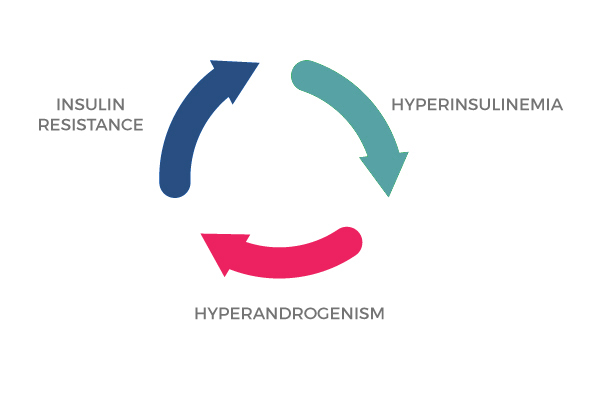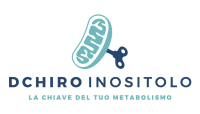What is PCOS
Polycystic ovary syndrome
PCOS (Polycystic ovary syndrome) affects 5% – 10% of reproductive-aged women. It is a syndrome that depends on various causes, whose onset is still partially unknown. It is also known as Stein-Leventhal syndrome, named after the researchers that first discovered it in 1935. Today PCOS represents one of the main causes of female infertility, as well as the most common endocrine disorder among reproductive-aged women.
How is PCOS diagnosed?
The symptoms connected to the syndrome may vary a lot, in a way that makes its identification hard, especially during adolescence. According to the Rotterdam Convention of 2003, PCOS occurs when at least two of the following characteristics coexist:
Ovary is often enlargened with several cysts measuring 4 to 7 mm. Hyperandrogenism, on the other hand, might cause the onset of further dysfunctions, that affect women’s physical appearance.
Such dysfunctions are:
Due to their insulin- resistance, women affected by PCOS are more at risk of developing overweight and obesity. For this reason, women with such syndrome are more predisposed to the onset of other pathologies such as diabetes, hypercholesterolemia, cardiovascular disease and more
DR STEFANO LELLO, SPECIALIZED IN GYNECOLOGY AND OBSTETRICS, WILL HELP US LEARN MORE ABOUT PCOS
Treatment of Pcos
Polycystic Ovary Syndrome
The therapies aim to relieve the specific symptoms.
Hence, terapies may treat hirsutism, acne, menstrual irregularity or anovulation in women who want a pregnancy.
Not only is the therapy based on medication, but it is also matched with a change in lifestyle, diet and exercise.
If the objective is a more regular menstrual cycle, the most common therapy consists in administering oral estroprogestinics. The aim is to improve the cycle, by contrasting its irregularity and produce beneficial effects on acne and hirsutism whenever they occur.
The therapy may also vary depending on which pathology it is meant to treat:
A healthy lifestyle and weight loss can help restore ovulation and are also beneficial on a psychological level. (learn more)
In case of PCOS it is a consequence of anovulation. It is often treated with medication aimed at inducing ovulation
A natural alternative: the benefits of DCI
in treating PCOS
As explained above, patients suffering from PCOS are most likely to develop insulin-resistance and hyperinsulinemia:
High levels of insulin in blood
Hyperinsulinemia may in turn produce hyperandrogenism and trigger a vicious circle. In addition, this situation contributes to create an unbalanced ratio between LH and FSH, the two hormones which are responsible for the regulation of period and ovulation.

This is the reason why, when treating PCOS, insulin-sensitizers like metformin are often administered.
However, over the past few years the scientific community has been focusing on new preventive and therapeutic approaches to treat PCOS. The recent research has led to the discovery of natural substances, which are proven successful in treating PCOS, whether combined with the above mentioned medications or as substitutes.
D-chiro-Inositol is one of these substances, here is why:
DCI is involved in the insulin signal transduction and acts on the regulation of the glucose metabolism. However, whenever insulin-resistance takes place, there is a deficit of DCI, which can be at the root of the onset of insulin-resistance. A complementary intake of DCI by means of supplements lowers the levels of circulating insulin and halts the whole process, with positive effects on the often associated metabolic syndrome. More specifically:




